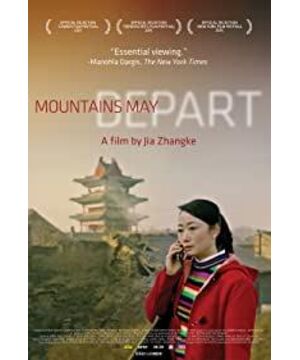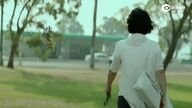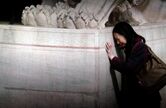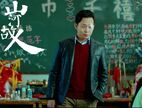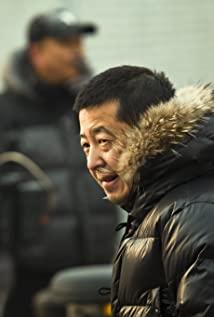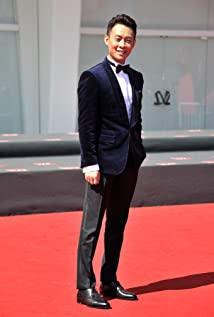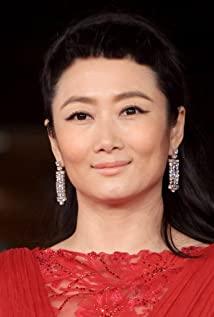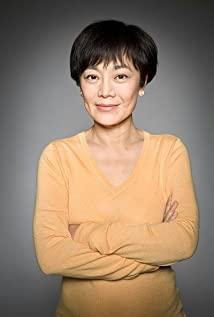The last story takes place in 2025. The distance between the beautiful, free and civilized Australia and the devastated Fenyang is so far away, it is like the Starfleet immigrating to space and the desolate Earth abandoned behind. The moving thing is that the people on the fleet have an unreasonable longing for the earth, and that the forgotten mother is still living as usual on the deserted and desolate earth, missing her descendants who have been away for an unknown number of light-years. It's just that they can no longer communicate, even if they can no longer communicate.
"Looking at home, far away" has always been a theme of Jia Zhangke. This change is not only geographical distance, but also the destruction of traditional internal values and psychological turmoil. It used to be the gangsters of the county town and the literary youth of the 1980s. Depressed and hesitant, fifteen years later, the target of his care has expanded, not only the bottom, but also those with vested interests. In the wind of change sweeping China, no one can escape. Everyone is lost, there is only the road in front of them, and there is no back. In the past, he sympathized with those who were knocked down by the times, but now those who have knocked down others are also taken into his mirror and observed in a larger context, and they are also crushed by the times. Some film critics criticized him for having problems with his values. In my opinion, the movie is not a political statement, more complicated is good, the sun shines on both the good and the bad.
Zhang Daole, the son of a Shanxi coal boss, went to Australia at the age of seven, lived in a sea-view house, received an international education, could not speak Chinese, and did not know what poverty was. The biggest enemy was nothingness. When he shouted to drop out of school and search for the meaning of life, Liang Zi, who was struggling with pneumoconiosis, was probably gone. Zhang Dale couldn't understand his father who grew up from a devastated land, just like many of us couldn't understand our own parents. , the big cities cannot understand the countryside. The internal rupture brought about by the high-speed expansion, we live in different dimensions of the same time and space, family affection, nostalgia and memories of the old, these feelings are innocent and silent against the rapid expansion of the times, torn apart beyond recognition by the energy of the big bang, "Not everything will be Destroyed by time", perhaps not destroyed, just that it is no longer possible to communicate. Times have distorted the language we use to communicate; even though communication is no longer possible, you are still in my heart.
From Shanghai to Australia, Zhang Zhile is like a rocket that was launched into outer space. His mother, Fenyang and even his father are the boosters behind him that run out of fuel and fall off. As the first generation of passive migrants, growing up like a test-tube baby, he is innocent and forced. He is dazed, like a human being sitting on a manned rocket exploring the vast outer space; Teacher Mia is another. Active migrants in a wave of Chinese immigrants. Hong Kong returned to Hong Kong in 1997. Hong Kong people called it the 97th deadline. At that time, the middle class in Hong Kong almost came out of their nests, and most of them immigrated to Canada. Mia, who immigrated to Toronto in 1996, is one of them. The fates of Mia and Zhang Dale are intertwined and become different variations of the theme of Li Chao.
Ye Qianwen's "Treasure" is a golden song of the era against the background of 1997. "The weather is getting colder in other places, and the future may be snowy. If I can, I don't want to leave you." In a previous interview, Jia Zhangke said that he was very interested in 1949, and he sighed that before the flames of fire, a new wave of Chinese people's migration surged up in the new century, and he finally wrote a cherished goodbye theme song.
"Who is on the Gold Coast, who is on the other side of the beacon", the most moving part of this film is not the smooth and perfect life on the Gold Coast, but the final return to Fenyang, where Tao dances in 1999 in the swirling twilight snow , This scene is so touching, the damaged and abandoned mother, Fenyang Zhao Tao China is integrated, it is the release of emotions, and at the same time there is a broad understanding of fate; it is the image of the damaged and abandoned, but it is so Quiet and vast, you will suddenly find that Tao, who is about to lose his sight, is the only one in this play who is not lost. The abandoned earth has no future, but the earth is still invincible, and so is life. At this moment, the grand narrative merges with the individual destiny, telling the audience's subconscious secretly, like weeping, like the perfect snow falling on the devastated earth.
Re-discussion on "Old Man in Mountains and Rivers": Does Art Have the Right to Express the Pain of the Bad Guys?
There are not only those at the bottom, but also those with vested interests. In the past, Jia Zhangke sympathized with those who were knocked down by the times, but now those who knocked down others are also taken into his mirror and observed in a larger context. Times crushed. The film shows that no one can survive the changes sweeping through China. Everyone is lost, there is only the road in front of them, and there is no back.
Some film critics criticized Jia Zhangke for having problems with his values, and another friend said that Jia Zhangke was no longer angry. "This vertical perspective may turn the pain of the people at the bottom who are still in it into chicken soup." I thought this was not a problem, but I didn't expect it It is indeed a problem for many people.
The question is, does art have the right to show the suffering of the bad guys? Can vested interests have the same pain and be shown as the bottom? Or is it necessary to deny that bad people also suffer and lose in order not to turn the suffering of the bottom class into chicken soup, or at least the suffering of the rich is lighter and more superficial than that of the bottom class? Does suffering belong to the realm of human nature or of ideology?
My personal opinion is this: Pain is a category of emotion, a feeling common to all human beings, not only in humans but also in animals; public opinion criticism of those with vested interests belongs to the category of morality; arresting criminals belongs to the category of law. These three fields should not be confused. The most wicked man will be deprived of his political rights for life, but not of his emotional rights as human beings: the right to suffer and be sympathetic is also included. For example, if I am a policeman, I will feel that Zhang Jinsheng is very sad after watching "The Old Man of Mountains and Rivers", but if he commits a crime and sneaks back to China, I will still arrest him. One thing is one thing. I am more afraid of emotional castration by morality and law, that is: when you know that this person has violated the law or is not compatible with a certain ideology, you are also emotionally distanced from him, denying his right to be with you Get human emotional treatment. The road will eventually lead to a separation from parents and wives who are labeled reactionaries. These conflicts (good and bad, good and evil, human nature and law, individual feelings and revolutionary positions) have been discussed in literary works such as "93", "The Gadfly" and "Les Miserables". Literature is not a judgment, and literature is not a political or moral statement. Its complexity expresses the complexity and darkness in our hearts, and expresses the dilemma and unsolvable predicament in life. To speak is to transcend. This is exactly why we still read literature today.
View more about Mountains May Depart reviews


